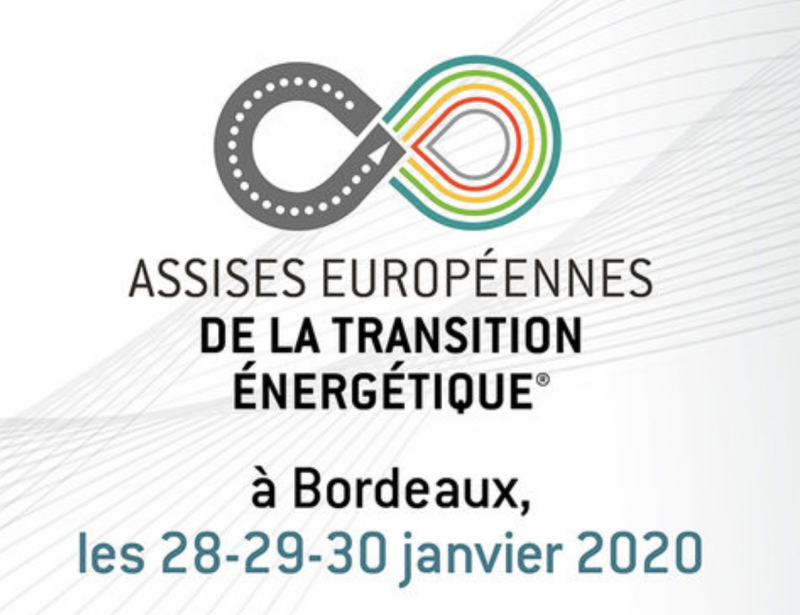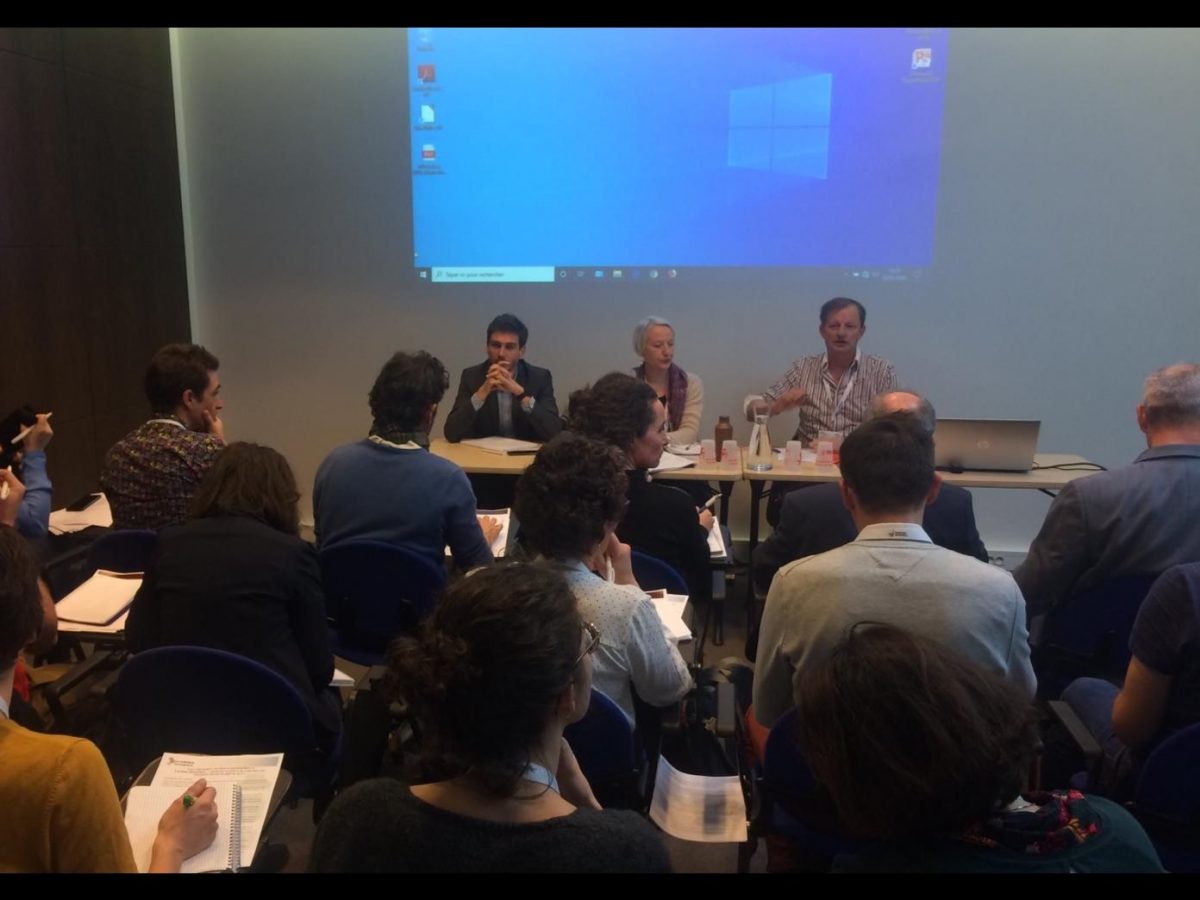
A look back at the 21st edition of the European Energy Transition Conference
The Palais des Congrès of Bordeaux opened its doors to some 3,500 people on the occasion of the 21st edition of the European Energy Transition Conference, on the 28, 29 and 30 of January. This was an opportunity for Climate Chance to co-facilitate a workshop with the Fabrique Écologique, based on its 2019 Report.
The European Energy Transition Conference: Edition 21
While « Les assises de l’énergie » was primarily aimed at French actors in the energy transition until 2016, this event has taken on a new dimension by extending to the European level. This year’s edition enabled representatives of local authorities, non-profit organisations, youth groups, think-tanks, trade unions and private and public companies from different countries to come together to present their progress and innovation in the field of energy production and consumption.
But what is the global context of the « Energy Forum »?
According to the Climate Chance Observatory’s 2019 Synthesis Report – Sector-based Book – in 2019, greenhouse gas emissions from energy production have continued to increase despite the great difficulties experienced by the historical companies of this sector and their attempts to move away from fossil fuels. Moreover, energy policies remain generally contradictory: increasing subsidies for fossil fuels as well as support mechanisms for renewable energies. Finally, there is a growing trend towards the « remunicipalisation » of energy in Europe, which reflects a desire for a more direct control of the production by local authorities.
The conference: role models of energy transition and claims
The European Energy Transition Conference in Bordeaux was the occasion for Climate Chance to attend plenary sessions, conferences and workshops based on the common theme: « Together, let’s cultivate the power to act!
Alain Waller, from the Somme energy union, presented the boiler room project of the city of Corbie:
🔴 En direct des #assisesTE
— Climate Chance (@ClimateChance) January 29, 2020
Alain Waller, du syndicat d' #energie de la #Somme_fr à propos de la ville de Corbie: L’installation d’un réseau de #chaleur avec construction d’une chaufferie centrale #biomasse et #gaz, a permis 5 à 10% d'économies en moyenne par abonné 👌 pic.twitter.com/oKtCzToVNx
Four representatives of the youth climate movement also came from Switzerland, France and Uganda to make their demands heard: « With the discovery of oil reserves in Uganda and the pipeline construction project, people have been displaced without compensation, » said Hilda Flavia Nakabuye – from the Green Planet Africa community-, referring to Total’s oil project in Uganda.
Anni Sinnemäki, The deputy mayor in charge of the environment in the city of Helsinki, presented an assessment of the Finnish capital’s local climate, energy and adaptation plan:
🔴En direct des #assisesTE ‼️ Dernier jour!
— Climate Chance (@ClimateChance) January 30, 2020
🔝: "Entre 2010 et 2018, l’utilisation de la #voiture a baissé de 27% à 20% à #Helsinki, au bénéfice de la marche à pied et du #velo". @AnniSinnemaki #Finland #ChangeNow pic.twitter.com/uLMhYczxrP
Climate Chance presents its 2019 Synthesis Report alongside the Fabrique Écologique
During this event, Dominique Pialot, Director of Communication and of the Climate Chance Observatory, had the pleasure to co-facilitate a workshop alongside the Fabrique Ecologique.
The discussions were based on a note recently published by the Fabrique Écologique « Communes, intermunicipalities and climate action: how to accelerate the reduction of greenhouse gas emissions », which is based on the « 2018 assessment of non-state climate action » of the Climate Chance Observatory.

The « Local Action Book » 2018 on local mobilisation of the Global Observatory of Non-State Action, produced by the Climate Chance Association, has indeed been taken up by Think and Do-Tank to show the development of local platforms and tools for the measurement, reporting and verification (MRV) of greenhouse gas emissions and strategies implemented at local level.
In addition to highlighting the growing involvement of non-state actors at all levels, this exchange made it possible to propose certain major directions to be followed to accelerate GHG reduction:
- Each local authority should set a greenhouse gas emission trajectory for itself.
- It would also be important to hold a climate orientation debate before the budget orientation debate, so that the climate is taken into account in investment choices.
- Finally, care should be taken to systematically consider in all housing and public building renovation operations, how the development of renewable energies can be linked to them.
The next edition of the « Assises » will therefore be an opportunity to measure the progress of the proposals put forward… see you in 2021.


